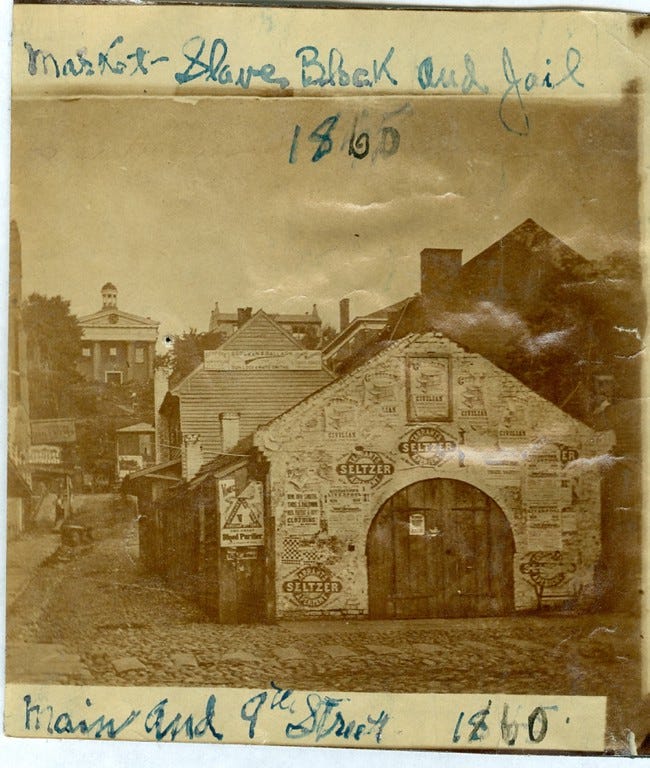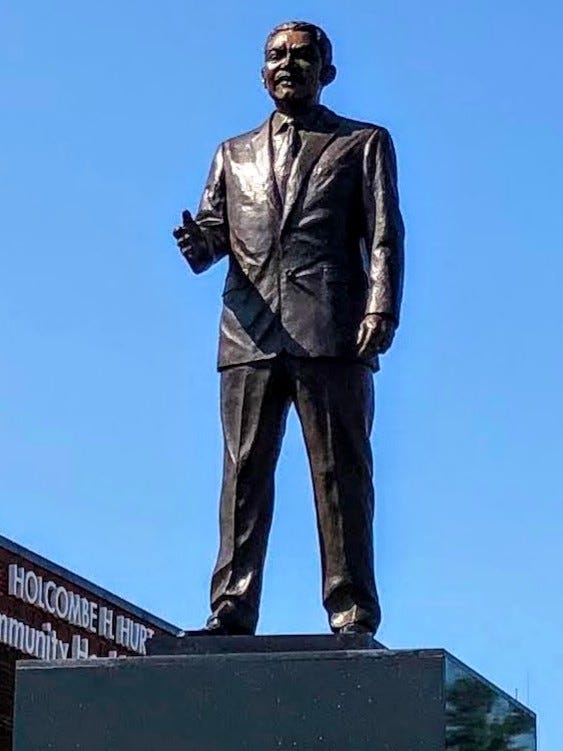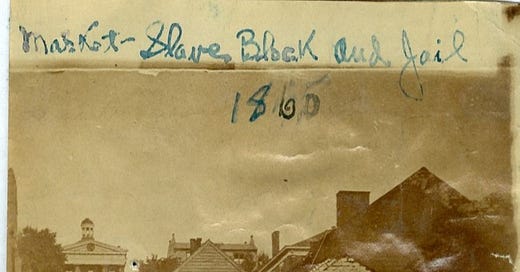Bridge of Lament 2024: Our Second Crossing
New daily writings of remembrance and lament, toward equality and justice in our city
Lynchburg, Virginia, has a history to contend with, and it begins with facts like these:
The city of Lynchburg once had the largest enslaved population in Virginia per capita among the 10 largest cities and towns in the Commonwealth—even more per capita than Richmond or Norfolk.1
Lynchburg was the largest slave market in Virginia west of Richmond, the state capitol.2
Richmond itself was the largest slave market in the Upper South—and the second largest in the entire South after New Orleans.3
The state of Virginia held the highest population of enslaved persons of any state. It is safe to say that Lynchburg's slave market helped bump enslaved persons to the top of the state’s exports in the years before the Civil War. 4

How do we tread through facts like these today?
Last year, we explained how author and pastor Duke Kwon suggested a path for us:
“What if the period between June 19th and July 4th were to become an annual 16-day season of national remembrance, lament, and renewal?”
. . . and how, in her book Journey to Freedom, Natasha Sistrunk Robinson asks,
"What if Black people did not bear the burden of that work? What if the people who have benefited the most from generations of Black enslavement bore the responsibility to prepare for such a remembrance prayerfully and thoughtfully?"
We are continuing in our second year on this path: building a Bridge of Lament, using the days between Juneteenth and Independence Day to reflect on the people, places, and events in Lynchburg, Virginia, impacted by white supremacy throughout the city’s history. Through daily historical, poetic, and personal writings by Lynchburg community members, we will continue to draw our community into remembrance and lament, and ultimately to a renewed pursuit of equality and justice both in our city and our country.
Whether you joined us last year or are new to the project this year, welcome. We have gathered a variety of histories and meditations for you. Look for weekly posts from the archives on the next three Wednesdays. And once again, with new daily readings beginning on Juneteenth, let’s cross this bridge together.
“We are caught in an inescapable network of mutuality, tied in a single garment of destiny. Whatever affects one directly, affects all indirectly.”
-Dr. Martin Luther King, Jr.

Ted Delaney, Lynchburg’s Chief Public History Officer and Director of the Lynchburg Museum.
Ted Delaney, May 15th, 2024 [Jones Memorial Library program] “Uncovering Lynchburg’s Slave Trade” with Noelle Beverly, Ted Delaney, and Deborah Smith.
ibid., “Uncovering Lynchburg’s Slave Trade”
Thank you to Ted Delaney, Lynchburg’s Chief Public History Officer and Director of the Lynchburg Museum, for providing this information.



